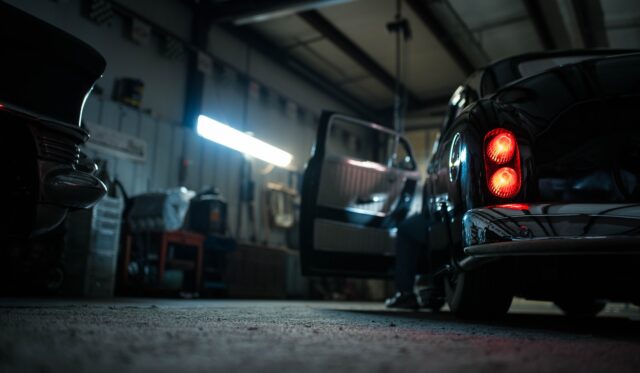
Regularly maintaining your car is an essential part of owning a vehicle. The stress of daily driving creates wear and tear that affect longevity and performance. With regular auto maintenance, parts will last longer and be in peak condition.
Car maintenance is no different from how you maintain your own body. You clean yourself, eat healthily, and go to regular checkups with your dentist or doctor. Your car also needs to be cleaned, use optimal fuel and fluids, and be checked regularly by automotive service providers.
While it may seem like an added cost, regular preventative maintenance will save you from more expensive repair costs down the road. You can also save on maintenance expenses by using your manufacturer’s warranty or getting the best extended car warranty.
Get to Know Your Car Well
The first and most important part of maintaining your car is knowing your vehicle well. Your car (and its owner’s manual) will tell you what it needs and how to keep it running.
Take the time to read your vehicle’s manual. In it, you will learn how to choose better fluids, coolants, and fuel for your car. You will also know how to spot and diagnose issues. The owner’s manual also tells you the ideal time to service each car part.
As you drive your car, you should learn how it communicates with you. The owner’s manual tells you about your vehicle’s warning lights and other indicators. Outside of these indicators, you should also learn how to listen to your car through its performance.
For example, a check engine light means you should drive your car to a repair shop immediately for diagnostics. Soft or squeaky brakes mean you might want to roll to the car shop immediately to get your brake pads or fluids checked. Shorter gas mileage or a lack of acceleration might mean it’s time to check your engines.
Finally, you should check your manufacturer’s warranty or extended auto warranty for coverage. Some warranties become void once you skip out on the recommended service schedule.
Short-Term Car Maintenance Items
Some car parts need frequent checks or maintenance. These are the parts that experience the most wear and tear or are easily checked.
Regularly wash your car. Built-up dirt and grime not only make your car look bad but also affect its performance and longevity.
Check your headlights, turn signals, and brake lights daily. You only need a quick visual inspection around the car to ensure that these are working. Replace what’s busted immediately.
Every month, check your oil and coolant levels when the engine is cool. Don’t let it drop low, especially if you’re going on a long trip. Every three months, get an oil change. Clean oil lubricates your engine and prevents corrosion, which prevents engine failure.
It’s important to check your tire pressure and tread depth at least once every month. Proper tire pressure causes less stress on your vehicle’s tires, preventing damage. Also, check your tread depth. Shallow tire depth means less traction. This makes it more difficult to control your vehicle.
Once a month, check your fluids. This includes your wiper fluid, power steering fluid, and air conditioning coolant. While these might seem like minor items, skimping out on these might spell safety issues. Without enough wiper fluid, you might have an obstructed view because of a wet windshield.
Long-Term Car Maintenance Items
Be sure to bring your car to the shop every six months and every year. Some parts and items need more expert care. The professionals at your service center can take care of those. You’ll find resources for some of the more common car repairs or issues you need to check every six months to a year. Most of these are covered by your manufacturer’s warranty or extended car warranty.
Check your batteries and cables every three months. Check for corrosion or fluid leakage, and make sure that connections are tight. Every six months, bring it in for a performance test. Your batteries’ lifespan is around five years if well-maintained. After that, you should replace it.
Rotate your tires every half year. Your tires get wear and tear unevenly. Rotating your tires spreads out the tread wear. It makes your car more balanced and extends your tires’ life. Tires can last very long, even up to a decade, if well maintained.
Inspect your brakes every year. Critical brake system parts include the lining, fluid, rotors, and pads. Make sure these are in top condition to avoid untoward accidents.
Your ignition system, if properly maintained, can rough it up to 100,000 miles. But it would still be a good idea to check the spark plugs, coils, wires, and other components.
Have your car waxed and deep-cleaned at least once every half year. It will save your vehicle from corrosion.
Belts, differentials, and shocks are some of the more complex parts of your car. Your professional service provider needs to check these annually.
Car Care Is Self-care
Make sure you have your automotive tools. More importantly, learn how to use them. Part of caring for your car is fixing its problems as soon as it happens.
Finally, keep your car insurance and extended auto warranties up to date. With these, you will not worry as much about major repairs or adverse incidents.
As essential as they are to our daily lives, cars deserve all the care they can get. A well-maintained vehicle is safer, less stressful to handle, and responds well to your driving needs. Regular car maintenance is part of maintaining your well-being.








